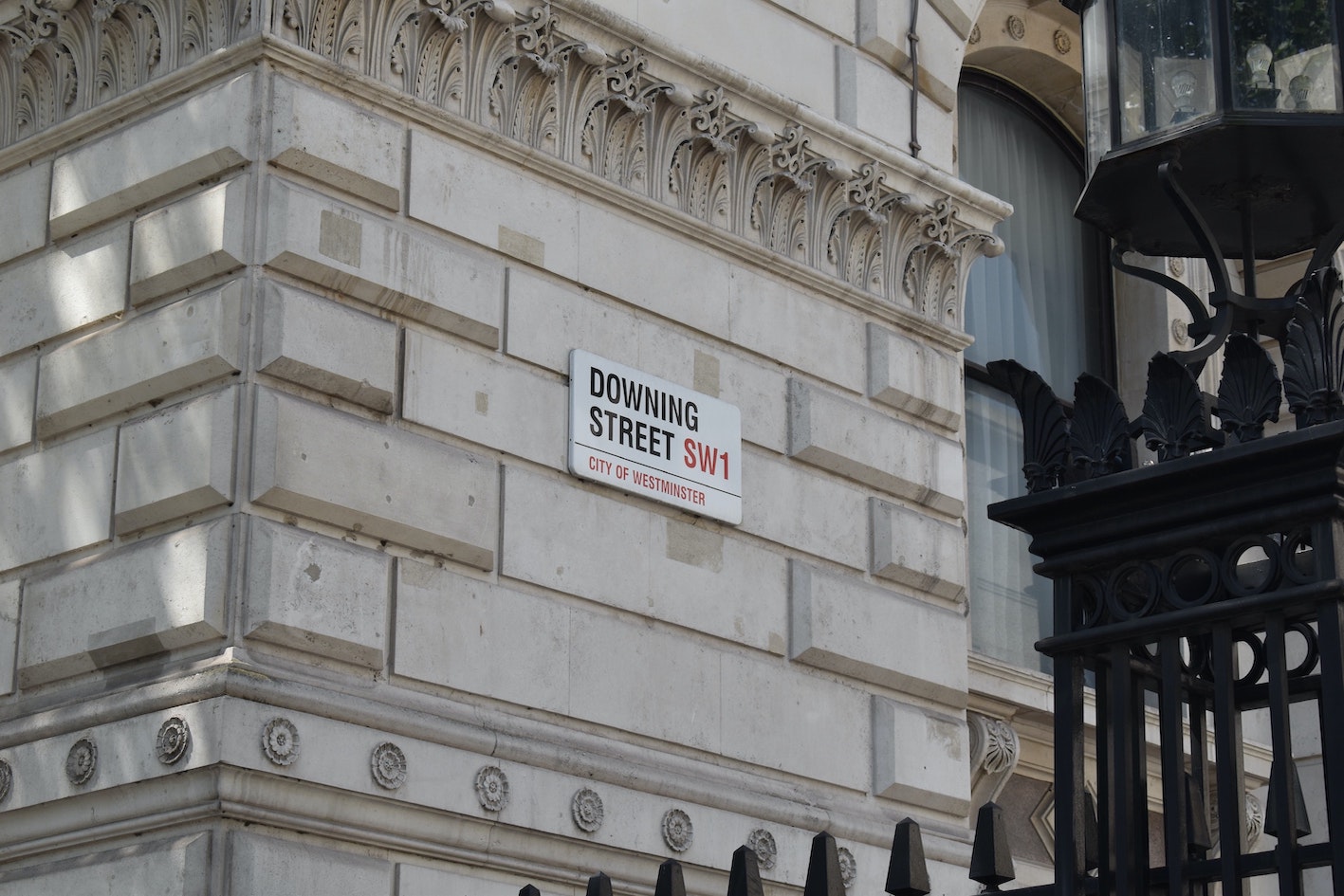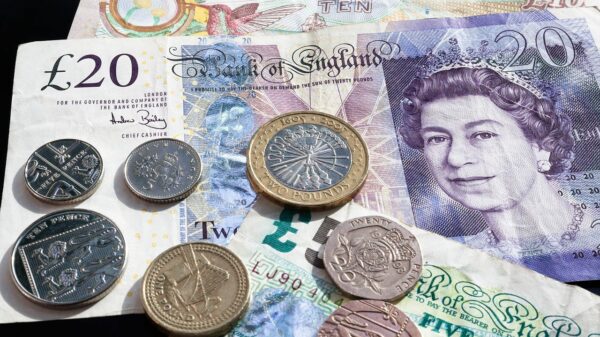Roar writer Hannah Apen examines the new Conservative mini-budget, analysing the fallout from Chancellor Kwasi Kwarteng’s annoucement.
What is it?
On Friday 23 September, Kwasi Kwarteng, Liz Truss’ brand-new Chancellor of the Exchequer, revealed his plans for enormous tax-cuts. In fact, these would be the biggest tax-cuts that the country has seen for over 40 years.
As well as looking to reverse upcoming increases in alcohol duty and corporation tax, Kwarteng has suggested scrapping the top rate of income tax, meaning any income over £150,000 will be taxed at 40% instead of the current 45%.
Other big tax changes include reducing the rate of basic income tax, which applies to any income between £12,571 and £50,270, from 20% to 19%. He also proposed changing the rules around stamp duty, the tax charged on the purchase of a house, so that it will only be charged on purchases of over £250,000 instead of the current £125,000. First time buyers will be given a £425,000 tax-free allowance on property purchases that do not total more than £625,000, up from the current figures of £300,00 and £500,000 respectively.
The recent 1.25% rise in the rate of National Insurance will also be reversed, and the proposed 1.25% Health and Social Care Levy tax which would have replaced it will no longer be introduced. Plans to increase Corporation tax from 19% to 25% will also be scrapped.
In total, it is estimated, these tax cuts will amount to £45 billion by the 2026-27 fiscal cycle.
Other proposed changes include a scrapping of the cap on bankers’ bonuses. These currently stand at a maximum of 200% of an employee’s fixed pay, and 100% without shareholder approval. Currently these caps are in line with EU policy.
Under Kwarteng’s scheme the requirements for receiving Universal Credit will be more stringent, with those working under 15 hours per week set to have their benefits cut. At the moment, reductions in benefits would be implemented for those working less than 12 hours per week, a recent increase from the previous 9 hours. It is worth noting that working hours are calculated based on earnings as opposed to looking at a time sheet. The national minimum wage is taken as a standard, and a person’s income is divided by this to calculate the number of hours worked.
The government has also recently pledged to freeze the cost of energy bills. This means that, at least until 2024, households will not pay more than £2,500 annually to cover their energy bills, a move predicted to save the average household over £1,000 per year. This is in addition to the £400 which is to be given to every household to help deal with rising costs, and the suspension of the £150 green levy. Overall this scheme is expected to cost £150 billion.
High spending and low taxation? “How do we pay for all of this?”, I hear you ask.
Why, public borrowing, of course! It is expected that by the end of this financial year the government will have borrowed £234 billion – whilst less than the previous financial year, during which just over £321 billion was borrowed, this is still significantly higher than the pre-covid 2019-20 financial year figure of £55 billion. Financial analysts are predicting that the new plans will mean that borrowing remains above £100 billion pounds each financial year until at least 2027.
What’s the logic?
The government line is that this package aims to encouraging economic growth by attracting foreign investment in the UK economy. If we cut our taxes it may be favourable for business owners and other wealthy individuals or groups to operate out of British financial hubs as opposed to those in the EU. Since Brexit, many financiers have taken their money elsewhere because it became harder to trade with the rest of Europe from the UK, and so for many it made little economic sense to stick around.
If this plan works, and if we will receive more investment, the theory goes that this money will be circulated in our economy and will trickle down to eventually benefit all members of our society. The bosses pay the bankers, the bankers buy houses, the estate agents receive commissions, the commissions fund more meals at restaurants, the restaurants make more money, the servers are paid more, more jobs are created, and so on. Kwarteng has also criticised “barriers to enterprise”, arguing that if taxes were lower, people would be more inclined to make more money and take up higher paying positions.
The problem with this theory of ‘trickle-down economics’ is that very rarely do the people with all of the money feel the need to spend it freely. More often than not, money sits at the top of the chain, where it is essentially hoarded. When this happens, the rest of society never sees the benefits of these tax cuts, aside from perhaps a small increase in their post-tax income. As ‘trickling’ implies, those at the bottom receive the least, as many claim happened in the US and UK during the 1980s. On top of this, public spending is often cut to reduce borrowing, and so the people that rely upon these services the most end up losing out twice.
What’s the political response?
Kwarteng’s proposal is vastly unpopular. This sort of enormous public spending is not in line with traditional Conservative frugality, with this stark contrast of values creating hostility within the party towards these plans. Rachel Reeves, Labour’s Shadow Chancellor, thanked Mr Kwarteng for his “comprehensive demolition” of the Conservative track record in government.
The United Nations affiliated International Monetary Fund (IMF), which exists in order to help nations facing economic crises, has commented on the package. This a clear warning sign – the IMF usually reserves its commentary and advice for developing and crisis-stricken nations. Established economies, such as that of the UK, are not often the subject of scrutiny. The IMF was critical of Kwarteng’s package, warning that it would likely “increase inequality”, and has suggested that the UK government ought to “re-evaluate”.
Labour leader Sir Kier Starmer has commented on Kwarteng’s announcement, stating that the Conservatives can never again “claim to be a party of fiscal responsibility”, adding that the warning from the IMF should be taken seriously.
The Liberal Democrat MP Sam Collins has branded the Conservative announcement as “economic vandalism”, whilst their chief whip, Wendy Chamberlain, has called on the Conservatives to “fix this failed budget”.
In her first public comments since the announcements on Friday, Truss has defended the package saying that this is “the right plan”, and that claims that it will increase inequality are “not true”. On Thursday morning she sought to defend her plans on local radio, giving a series of performances which were widely lambasted as stilted and incompetent.
What’s the economic response?
The value of the pound has plummeted in the days since these plans were revealed, reaching an all time low against the dollar of $1.03. This is happening because investors have been pulling out of the UK market amid fears of interest rates rises and concerns over the stability of the British economy.
Also worried about interest rates are lenders, with mortgage offers being revoked and new customers refused – a fear that was only reduced by Bank of England intervention.
The Bank announced that it will buy as many government bonds as is necessary to stabilise the economy. Government bonds are sold to investors in order to support government spending that is not covered by taxpayer money. These bonds often earn the holder a periodic amount of interest from the government, known as a yield. At the moment the yields are very high, partially due to panic over the new tax package. This means that the government will have to pay much more to investors to convince them to buy government debt. This may feed inflation, weakening the value of the pound, leading to more borrowing, inducing a vicious economic downward spiral. This would render Kwarteng’s tax cuts redundant, as a pound is worth less and less.
The Bank of England’s role in preventing this is to buy enough bonds that the price of them rises again and yields reduce. The lower the cost of the bond the higher the yield. At the moment, the higher yields and lower costs make the bonds a much riskier investment than many investors are prepared to hold. Pension funds, for example, are being pressured to sell their bonds. This means that the value will continue to fall until the bonds are a desirable asset. By buying so many bonds and allowing them to stabilise, the Bank of England hopes to control this fall in value and spike in yields, so that soon other investors will want to purchase the bonds again.
This intervention has created conflict between the government and the Bank of England. There are mutual accusations (from both pro-tax cut and pro-interest rate hike sides) of undermining the programme of the other. This tension is not entirely unexpected – even on the campaign trail Liz Truss was quizzed by Laura Kuenssberg about her support of Bank of England independence.
Who does the budget benefit and what does it mean for the everyday person?
Established private companies, those with profits exceeding £50,000 per year, will feel the greatest benefit from the changes to corporation tax plans. This, of course, does little directly for small businesses or for those who have felt the impact of the economic turmoil over the past few years.
People earning over £150,000 per year, around 660,000 individuals in the UK, will take home an average of £10,000 more per year beginning next financial year.
For most of us, however, there are different implications.
Interest rates are increasing, meaning that banks are less inclined to give out loans and they are more expensive to ascertain. We are already seeing this with many building societies refusing mortgages. Customers who already have loans and mortgages will end up owing more as these rates climb.
For those earning over £12,570 per year, there will be a decrease in the amount of income tax paid, leading to some extra money to take home at the end of each pay period, (an estimated average of £170 more per year). In addition to this, the National Insurance changes are set to save the average earner £330 per year.
But – and this is a big but – this is being undercut by the falling rate of the pound and rising interest rates. This also means that savings will earn interest at a higher rate, but since these rates are being changed in order to offset the impact of inflation, this doesn’t mean that that the savings will be worth any more, only that they, hopefully, won’t be worth much less.
As for the rest of it, it’s not entirely clear what’s going to happen next. House prices could rise or fall dramatically depending on both how Kwarteng’s plans for stamp duty pan out and how hard people’s mortgages are hit by this instability. Such instability is obviously worrying.
What do I think?
A big, hot, sticky economic mess is falling down around us. That much is clear to anyone who has so much as seen a news headline in the past 3 days. My main qualm with this whole situation is the total lack of necessity of this radical mini-budget. The new cabinet is attempting to shake things up, to try to usher in an era of growth, and to show themselves to be a radical, fresh, brand-new government – but they failed to fully evaluate the consequences of their actions before announcing them. The announcement is wildly unpopular.
The sort of arrogance it takes to gamble with people’s livelihoods in such a risky economic context is staggering. The rapid escalation of the ongoing crisis in the UK was completely avoidable. But of course the top earners, who stand to benefit most from this package, are not the ones who will be searching for pennies in their freezing homes if and when it all goes wrong.
The Conservative government has shown a lack of regard for those outside of the top bracket of earners that is so severe that it borders on contempt. The Tories are playing with fire, and soon enough all of us are going to get burnt.
After the original publication of this article, the cut to the top rate of income tax was scrapped by the Chancellor before the first day of the Conservative conference in Birmingham, after days of bad press and backbench rebellion.















